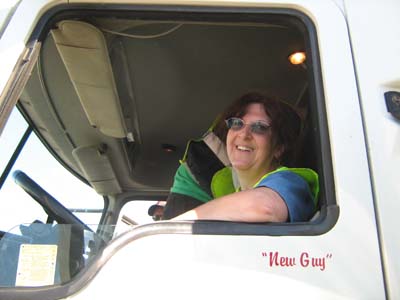
by Carolyn Steele
You want to put your readers through the wringer. Your character might die, might pull through, we’re all waiting to know. Will they make a rapid recovery? Remain permanently disabled? Return from a near-death experience to write books about life?
Episode 2: Narrow Escapes (if you missed it, part 1 can be found here.)
Escaping violent attacks: For uncertainty and ultimate survival, go for the blow to the head…it can take your character anywhere you like on the recovery scale. Your victim can pass out briefly, time enough for your assailant to think they have succeeded and leave. Then, they wake up with a thumping headache, fuzzy vision, dizziness, nausea, loss of memory, yes concussion. This is easily curable with a few days of rest unless the damage goes deeper. Potentially fatal bleeding into the brain can be slow to appear, and slow to build up. Although hospitals advise observation for 24 -36 hours, the record for delayed cerebral compression is 7 days after a head injury.
For a positive outcome, you can alert your surrounding characters by the early symptoms of double vision and worsening headache. If you let them wait for full-on unconsciousness as the pressure builds, things won’t go so well. The outcome, from successful surgery to persistent vegetative state will be yours to determine.
But: nobody gets ‘rushed’ to hospital. Lights and sirens are to get the ambulance to you, not to get you to hospital. Bouncing around corners on two wheels tends to place the hapless paramedic working in the back on his or her backside. With a patient on top.
Surviving shootings, stabbings, electrocutions and drowning? Just say no. Life is stranger than fiction; a pal of mine recently survived being shot in the head by a sniper, and breathing chest wounds can respond to the immediate application of a flutter valve. You can survive drowning in really cold water and I once treated a chap who was thrown off a third floor balcony by the jolt of being electrocuted…the landing restarted his heart.
But: these are exceptions, tales for paramedical blogs, not well-crafted plotlines. It always feels like cheating.
Escaping illness: Heart attacks, strokes, drug overdoses, most are survivable these days, with rapid intervention. A decent first aid course can supply all the details, and you might even save a life one day. (Sorry for the plug, I’m obsessed. Serious bit over.)
But: If you want to introduce a hero to do the lifesaving, please don’t make him a doctor. Waving a stethoscope about yelling ‘I’m a doctor’ and waiting for a nurse to clean the blood away serves no useful purpose in a crisis. Humble first aiders and rapid ambulance attendance make the difference. (With apologies, if he’s reading, to the only doctor in 20 years who was actually useful at the roadside.)
Having fun with heart attacks: I feel duty bound to mention, in passing, the situations in which heart attacks are most likely to occur. It’s not a myth that heart attacks are ‘waiting to happen’, a clot can get pulled into the heart by anything which raises the pulse. The big two, if you hate your character, are on the toilet and in the wrong bed. If you hate him enough, give him some crushing chest pain and difficulty breathing in a brothel. They might do the decent thing and make that call, but then they’ll ‘assist’ him out of the building and round the corner to wait in the street. Emergency vehicles outside the establishment are considered bad for business.
If, on the other hand, you hate your character’s family, the next most common scenarios are during weddings and Christmas dinners. Just guaranteed to spoil someone else’s big day.
Escaping road accidents: People can walk out of mangled wreckage relatively unscathed, but there comes a speed of direct impact at which the deceleration of brain inside skull just isn’t survivable. Before crumple zones and airbags that speed was 70-80mph, it will be a little higher now but the principle still applies. If you want high-speed survival, make it a rollover. The more the vehicle keeps moving, the more energy it absorbs, slowing deceleration on the inside. Fractured ribs, trapped legs, even spinal injuries can be survivable with decent treatment.
But: motorbikes? No. Unless your character is sporting a full face helmet and complete, tight-fitting leathers. And even then it’s a bit of a reach. A helmet can keep a skull in tact, and leathers can support a ruptured spleen, for long enough to get into the operating theatre…but are you really writing a medical drama?
Surviving suicide bids: Are you plotting a ‘cry for help’? Overdoses are the usual vehicle. They can end prettily, with stomach pump, tears and communication (or create conflict if you prefer) but choose your pills with care. Acetaminophen (paracetamol) causes irreversible liver damage several days after your protagonist has decided to live after all. The best survivable overdoses are aspirin (ASA) or the useful ‘unknown cocktail’. Your victim can vomit most of these back before a lethal quantity is absorbed.
Thwarting a genuine suicide bid? It is difficult to slit one’s own wrists, even if you really mean it, despite TV images of damsels in bloody baths. Tendons get in the way and they’re tough to cut through, this character can survive if you like. Chucking the toaster in the bath instead would be more efficient but people rarely think of it.
But: the chap found hanging in a police cell will not recover, coughing politely, after being stood back on the chair he jumped from. Hangings tend to work fast, unless found within 3 minutes, this person isn’t coming back.
The near-death experience though, that’s real. Experiments at NASA have shown that an almost-fatal lack of oxygen to the brain, however caused, creates tunnel vision, bright lights and feelings of euphoria and peace. Religious or not, dying or pulling several Gs, the experiences match…but more about visions of heaven in Episode 3.
Next time: Predictable, Lingering Deaths.
_______________________
Carolyn has been a paramedic, first aid trainer and palliative care worker. She has watched countless people die, although to be fair, mostly the ones she wasn’t tasked with saving at the time. One day there will be a book about death, people don’t talk about it enough, but currently her narrative non-fiction is more about life…and some odd ways to make a living. Her first book, A Year On Planet Alzheimer, is available at Amazon in both print and Kindle format. Her forthcoming book Trucking in English is currently being podcast, in 10 minute espisodes, on her blog and on iTunes.
[subscribe2]


Almost makes me want to kill off another couple characters. 🙂
Go on, you know you'll feel better afterwards. 🙂
This is so exciting for me. In the first pages of Camera Obscura, it's ambulance officers who take over from the protagonist, who tries to stem blood gushing from a woman's neck. They push him out of the way, take over, and they manage to get her to hospital – luckily she survives, because the whole novel depends on that!
Click on the link over to your right (yeah, there – up a little) to read what I mean.
I love it when the ambulance people are the heroes. and quite right too. 🙂
Love it, Carolyn. Thanks for sharing. I feel like I should invent a character just so I can kill one off. LOL. Your dinner paragraph reminds me of the Police song "Murder by Numbers." 🙂
Of course, formal dinners are popular callouts, there's usually something to snaffle by way of a treat while the family argues over who gets to ride along.
Carolyn, I've tried about ten times to leave a longer comment but it won't "take", I swear. So I'll simply say good post and leave it at that!
(Yay, that one took!)
Oh, and I was hoping for at least an OH EM GEE.
😉
Fantastic. I like a macabre blogpost that puts fiendishly ghoulish ideas in my head. And I mean that sincerely! x
Glad to oblige, Yasmin, 'fiendishly ghoulish', I like that. 🙂 Wish I'd added the really tasteless bit I opted to leave out now.
Great points, Carolyn. Your examples will be very useful to those writing about deaths. Those in my novel were car accidents. One survived and I think it is quite legitimate. The others could never have survived and the story would have been very different had they lived. Actually I don't suppose there would have been much of a story.